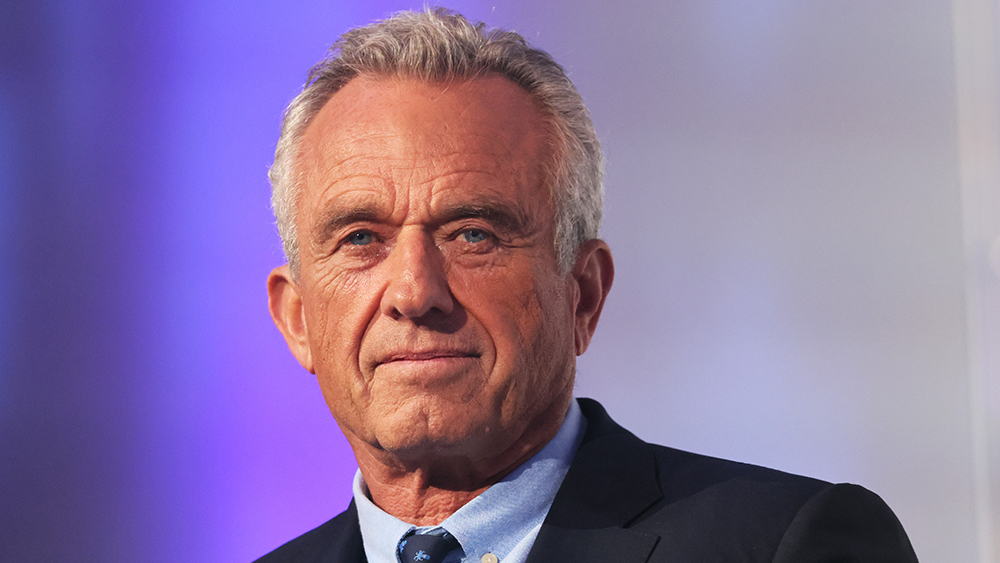 Parler
Parler Gab
Gab
- On Day 7 of the "End of Slavery Summit," Dayna Martin argued that medicalized birth in hospitals strips mothers of autonomy, instills dependence on experts and begins lifelong submission to authority, calling it the "first act of state indoctrination."
- Interventions like C-sections and forced protocols create artificial reliance on medical authority, conditioning parents to outsource decisions to doctors, schools and eventually the state.
- Hospital protocols undermine maternal instincts, fostering doubt and reinforcing statism (belief in centralized authority), starting from infancy via birth certificates and state-controlled identities.
- Martin shared her thoughts about home births and child-led learning, rejecting punitive parenting and compulsory schooling. She emphasized trusting children's natural instincts and living without hierarchical control.
- She urged parents to step outside systemic conditioning entirely, framing unschooling as a philosophy for a world without rulers, beginning with reclaimed autonomy in birth and education
- Mothers are made to doubt their instincts, relying on doctors instead of their own bodies.
- Interventions (C-sections, forced labor protocols, formula promotion) create artificial dependence on medical authority.
- Parents are conditioned to outsource authority, first to doctors, then to schools and ultimately to the state.
- Hospital protocols condition parents to accept authority without question.
- Mandatory schooling reinforces obedience to external control.
More from Day 7 of the "End of Slavery Summit"
Day 7 of the "End of Slavery Summit" doesn't end there. Here's a summary of the topics tackled by other speakers: Graham Wright discussed:- His evolution from statism to libertarian anarchism for over 15 years, crediting Ron Paul's influence and his subsequent study of Austrian economics, Murray Rothbard and 19th-century individualist anarchists like Lysander Spooner.
- His focus on polycentric law — how a stateless society could produce better legal outcomes through competition among private providers, emphasizing that monopoly (government) inherently corrupts services like security and dispute resolution.
- The necessity of rulers, arguing that anarchism rejects centralized control entirely. He dismissed fears of warlords or chaos, asserting that vigilant communities upholding self-ownership would resist tyranny more effectively than state structures.
- Why self-education is the priority for change, recommending resources like Rothbard's "For a New Liberty." While acknowledging limited value in political outreach (e.g., Ron Paul's campaigns), he cautioned against viewing electoral politics as a primary strategy.
- The stereotype of anarchists as violent rebels, framing anarchism as a philosophy grounded in reasoned dissent. He reflected on how his own obedience to authority as a youth later fueled his radical skepticism of state legitimacy.
- Why is freedom the fundamental essence of existence, while slavery is an artificial construct imposed by societal systems. He distinguished between "freedom" (everything) and "liberty" (social harmony without coercion), arguing that current society is built on slavery (e.g., laws, bureaucracy) rather than true liberty.
- Why laws are immoral tools backed by violence, contrasting them with immutable principles (e.g., natural law). Sechel outlined seven core "wrongs": murder, theft, assault, rape, lying, coercion and exploitation, stating that all other actions are inherently permissible if consensual.
- His radical self-expression and defiance of oppressive systems, urging individuals to reject fear-based actions. He shared his lifelong rejection of authority, framing defiance as a spiritual imperative to overcome inner and external tyranny.
- Overcoming slavery starts with self-awareness. Sechel warned against "artificial hindrances" (e.g., bureaucracy) and encouraged self-sufficiency (e.g., permaculture, alternative energy) as practical steps toward liberty.
- Why lasting change requires individual awakening first. He dismissed traditional revolutions as cyclical failures unless rooted in personal growth and creative collaboration, urging people to "persist, rebel and defy" without compromise.
Want to know more?
If you are ready to break the chains that bind you now, skip the wait and unlock instant access to all episodes and bonus content with the "End of Slavery Summit" package here. This is your chance to watch on your terms, at your pace–no delays, no censorship, no compromise. Because when it comes to freedom, why wait, when you can wake up now? Upon purchase, you will get instant and unlimited access to all "End of Slavery Summit" episodes, curated learning tools, 30 unique speaker gifts, 27 bonus videos from host Cory Endrulat, essential bonus eBooks, 60 clips from "The Liberator 2 Showcase Event Community Wisdom" and printable graphics and ads you can use to share the message. Sources include: BrighteonUniversity.com 1 BrightU.com BrighteonUniversity.com 2HHS Secretary Robert F. Kennedy Jr. cancels $500 million in mRNA vaccine projects
By Laura Harris // Share
Rethinking medical care with Dr. H. Gilbert Welch’s “Less Medicine, More Health”
By Kevin Hughes // Share
“End of Slavery Summit” on BrightU: Evan Wade’s bold stand against authoritarianism
By Jacob Thomas // Share
Mushroom contamination: What it means for your health and what it says about the food system
By Olivia Cook // Share
Governments continue to obscure COVID-19 vaccine data amid rising concerns over excess deaths
By patricklewis // Share
Tech giant Microsoft backs EXTINCTION with its support of carbon capture programs
By ramontomeydw // Share
Germany to resume arms exports to Israel despite repeated ceasefire violations
By isabelle // Share










